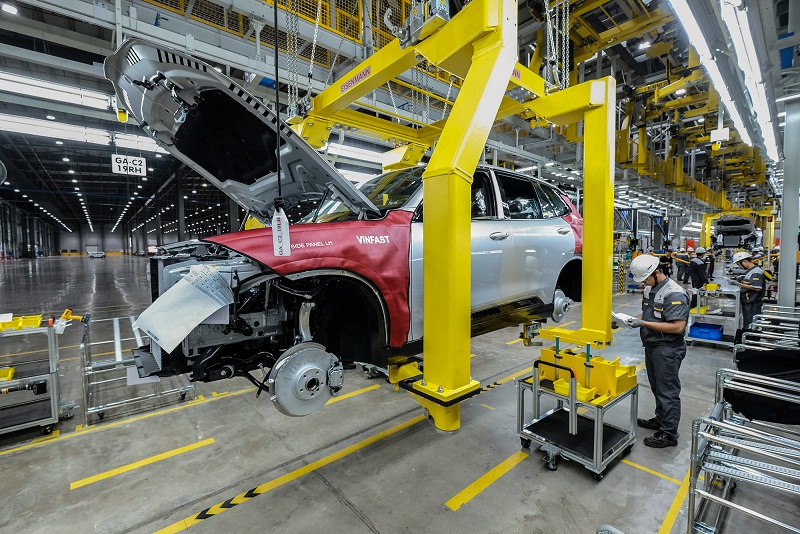Finance ministry proposes 50% cut in registration fee for electric vehicles
The move is aimed at promoting the use of more environmentally-friendly car models in Vietnam.
The Ministry of Finance has proposed a 50% cut in registration fees for electric vehicles, a move expected to encourage automobile manufacturers to push for more environmentally-friendly car models.
| Inside Vinfast manufacturing plant. Photo: Pham Hung |
The move is part of the MoF’s draft Decree No.140 on registration fees that is in line with the Law on Environmental Protection and instruction from Deputy Prime Minister Le Minh Khai on the issue.
At present, petrol or diesel cars with less than nine seats are subject to a registration fee of 10-15% on the selling prices. The new proposal, meanwhile, would put such fee for electric cars at 5-7.5%.
Assuming an electric car is sold at a price of VND600 million ($26,200), a 50% cut in registration fee means customers would only have to pay VND30-45 million ($1,300-1960) for registration.
The registration fee for a second electric car, however, would be the one applied to fossil fuel vehicles at 2%.
So far, VinFast, a subsidiary of Vingroup, is the only local car manufacturer capable of making electric cars with a capacity of 250,000 units per year.
As a reduction in registration fees for electric cars may pose a negative impact on the state budget, the MoF said slashing the rate by half at this period is an appropriate move.
The Vietnam Automobile Manufacturers Association (VAMA), reported the number of electric vehicles registered in 2020 amounted to roughly 1,000, accounting for 0.16% of the total registered number.
One of the main reasons for the lack of development of electric vehicles in Vietnam was due to inadequate transport infrastructure, including low investment in charging stations or land resources to build such facilities.
According to the MoF, a tax incentive for electronic cars would boost demand, but mostly in major cities with developed transport infrastructure systems, so there would certainly be no big jump in the number of car sales.












